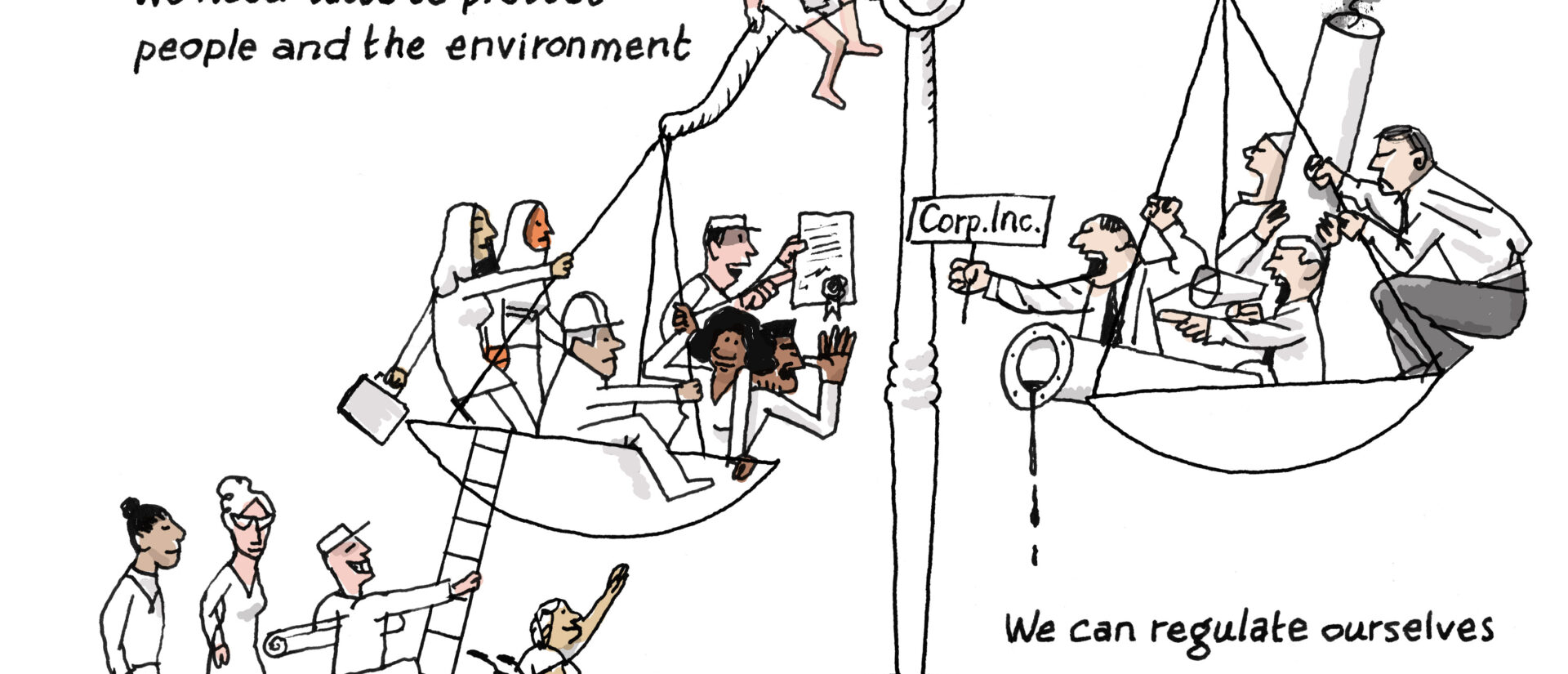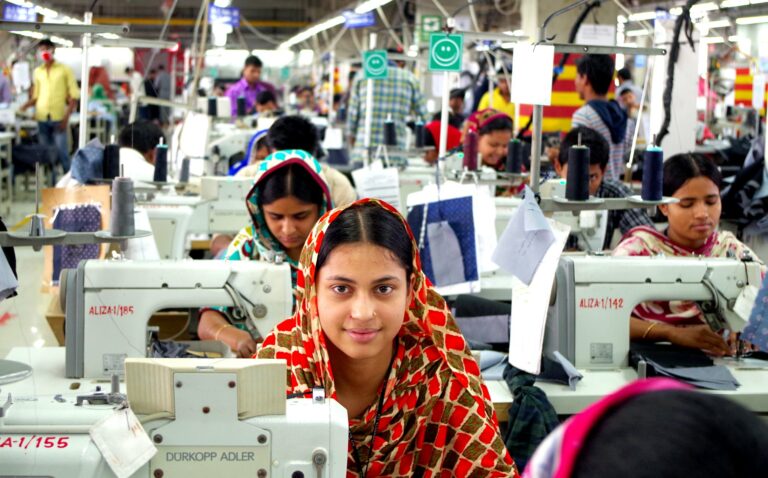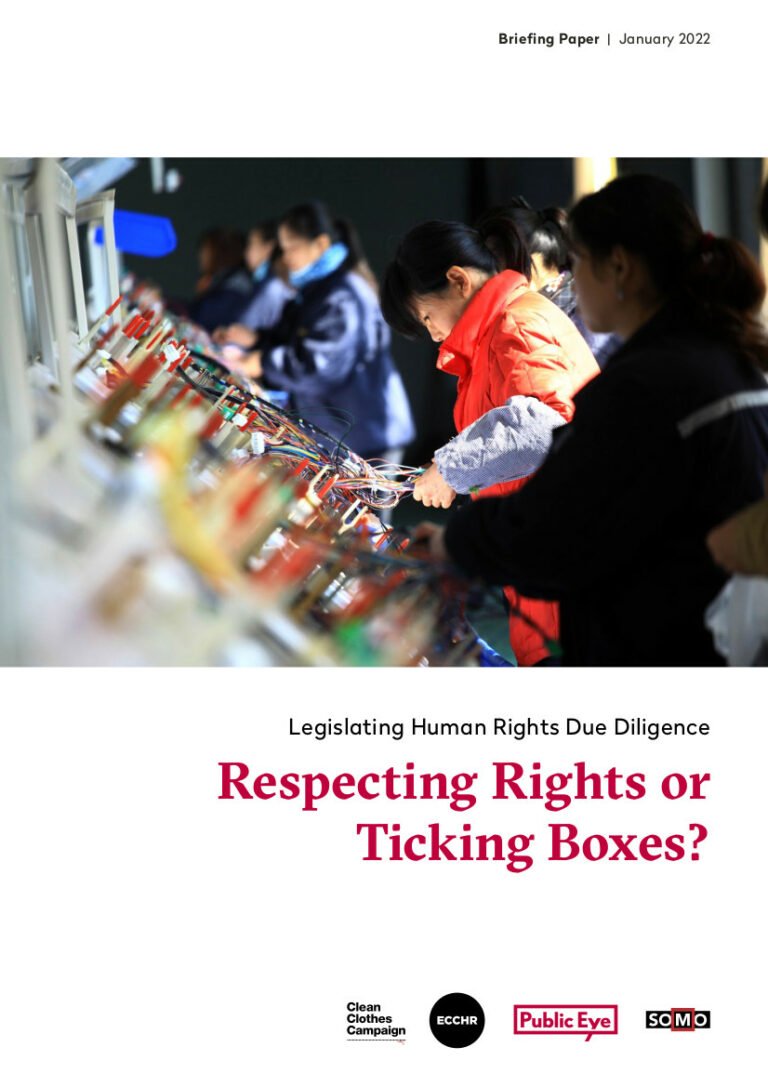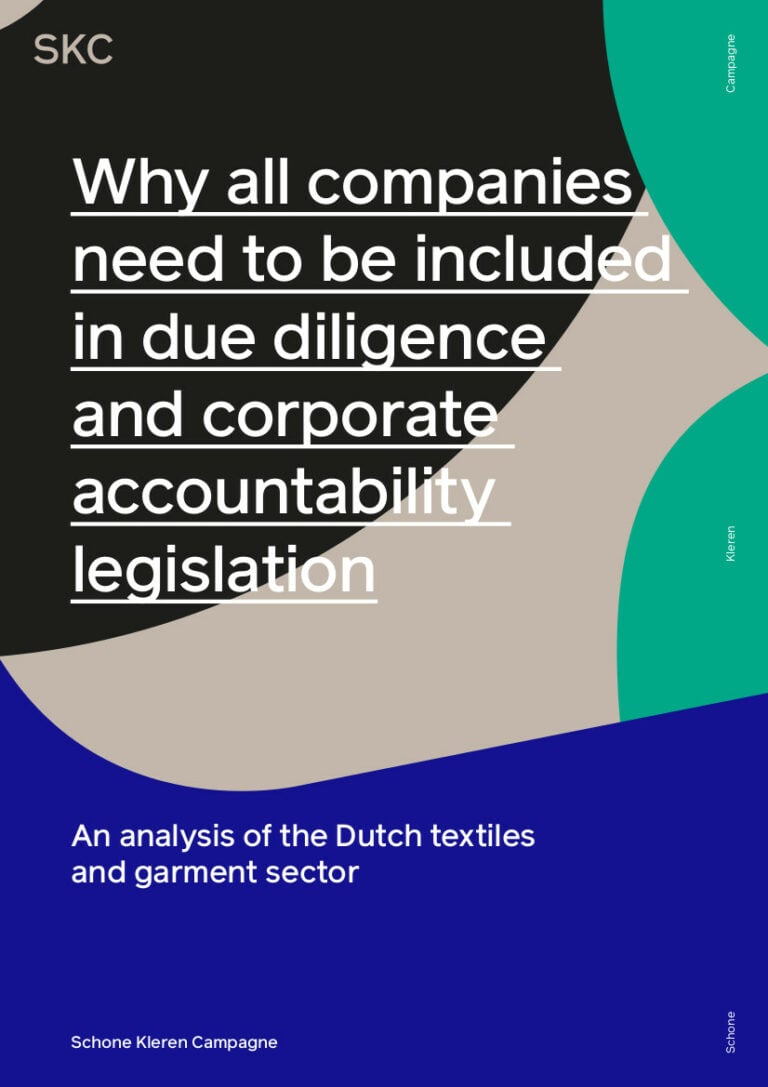
Industry schemes must not be part of the EU Corporate Sustainability Due Diligence Directive
The European Commission’s proposal for a directive on corporate sustainability due diligence includes a dangerous overreliance on industry schemes, multi-stakeholder initiatives, and third-party auditing, a briefing paper by SOMO concludes.
-
A piece, not a proxy (pdf, 783.85 KB)
The proposal(opens in new window) , introduced by the European Commission in February 2022, allows companies to rely on these mechanisms to demonstrate compliance with their newly defined human rights and environmental due diligence (HREDD) obligations and to use them as a shield to avoid liability and responsibility for addressing impacts.
In its briefing paper ‘A piece, not a proxy’, SOMO explains why the Commission’s approach is ill-conceived and risks replicating and crystallising in law a decades-long approach to corporate social and sustainability compliance which has proven to be ineffective in delivering improved outcomes for people. Worse still, it is affording these measures significant legal effects, including the possibility of acting as a defence against charges of liability.
SOMO’s paper explains how considerable research has shown that industry initiatives, MSIs, and auditing schemes are insufficient when it comes to effectively and consistently identifying risks and preventing harm. The inherent flaws and limitations of corporate self-regulation were what finally convinced policy-makers of the need for public regulation. It is therefore ironic and illogical that public regulation might revert back to industry-led initiatives as a means of implementation.
For this reason, while certain industry initiatives can be a piece of the due diligence puzzle, they should not be used as proxies for due diligence and should not play the dominant and defining role the Commission affords them in its Proposal. This approach risks exacerbating rather than removing barriers to justice and ignores years of research and evidence showing the inability of industry schemes, MSIs, and auditing to detect risks of harm and prevent abuse reliably and consistently.
Do you need more information?
-

Joseph Wilde-Ramsing
Advocacy Director
Related content
-
 SOMO welcomes game-changing Dutch bill on mandatory due diligencePosted in category:News
SOMO welcomes game-changing Dutch bill on mandatory due diligencePosted in category:News Joseph Wilde-RamsingPublished on:
Joseph Wilde-RamsingPublished on: -
EU and UN instruments must work in tandem to guarantee justicePosted in category:Published on:Statement
-
Respecting rights or ticking boxes? Published on:
 Joseph Wilde-RamsingPosted in category:Publication
Joseph Wilde-RamsingPosted in category:Publication Joseph Wilde-Ramsing
Joseph Wilde-Ramsing
-
Why all companies need to be included in due diligence and corporate accountability legislation Published on:
 Sanne van der WalPosted in category:Publication
Sanne van der WalPosted in category:Publication Sanne van der Wal
Sanne van der Wal
-
The Shell climate verdict: a major win for mandatory due diligence and corporate accountabilityPosted in category:Opinion
 Joseph Wilde-RamsingPublished on:
Joseph Wilde-RamsingPublished on: Joseph Wilde-Ramsing
Joseph Wilde-Ramsing -
Amidst the trend towards mandatory due diligence, the Bangladesh Accord model should not be abandonedPosted in category:Opinion
 Joseph Wilde-RamsingPublished on:
Joseph Wilde-RamsingPublished on: Joseph Wilde-Ramsing
Joseph Wilde-Ramsing -
 Debating mandatory human rights due diligence legislation: a reality checkPosted in category:NewsPublished on:
Debating mandatory human rights due diligence legislation: a reality checkPosted in category:NewsPublished on:

